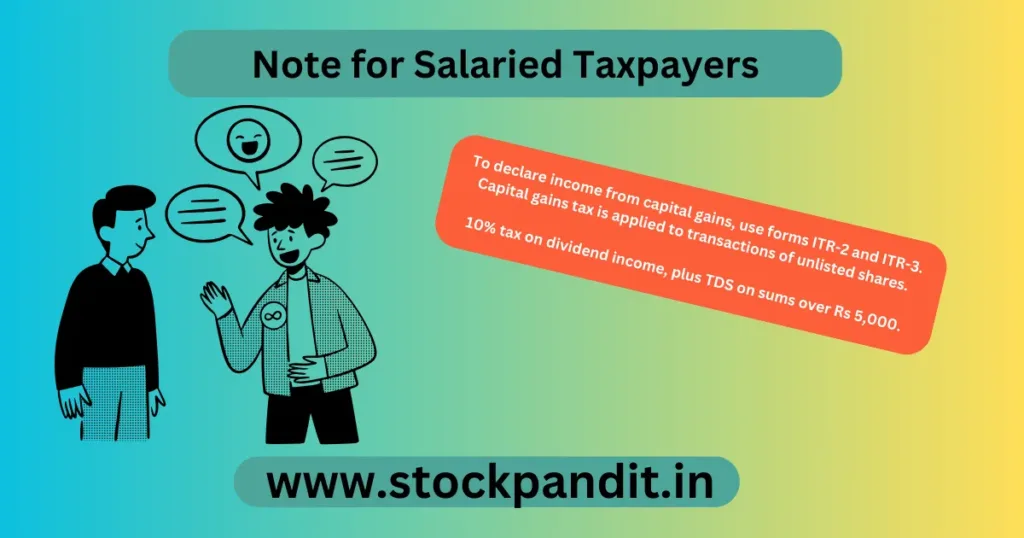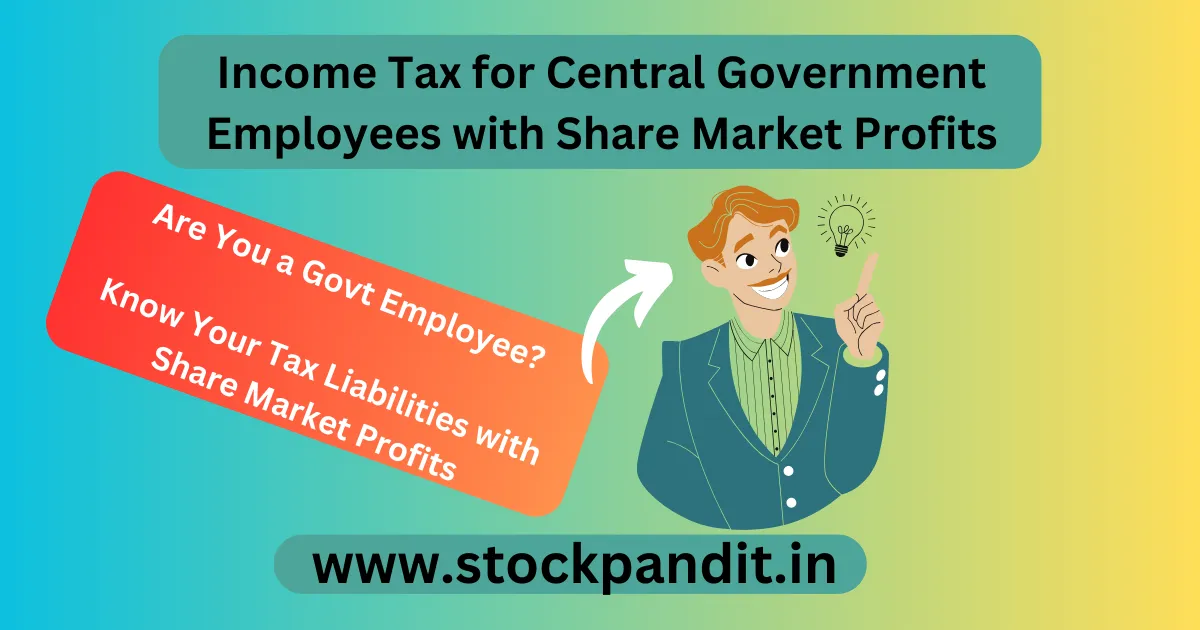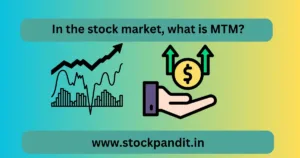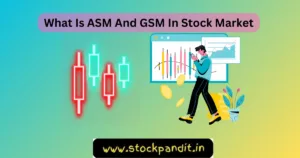introductory
Understanding the particular criteria when profits are made on the share market becomes crucial for a central government employee negotiating the complexities of income tax. Income Tax for Central Govt. Employees.
This article will walk you through the factors to take into account and the Income Tax Return (ITR) form to complete based on your circumstances.
Comprehending Income Taxation for Central Government Workers Having Share Market Gains
Selecting the Proper ITR Form: The right ITR form will depend on a number of variables, including your income, investments, and financial transactions.
It is best to check the most recent Income Tax Department suggestions or get guidance from a tax expert.
As various revenue kinds are taken into account by different ITR forms, it is important to thoroughly investigate your situation before submitting your return.
The ITR filing deadline:
July 31 is the deadline for filing the Income Tax Return (ITR) for money received during the fiscal year 2023–2024.
To prevent a last-minute rush, traders and stock market participants—especially those employed by the central government—should compute their tax liabilities and file their returns as soon as possible.
Gains on shares of equity Are taxable
For central government personnel who participate in the share market, it is essential to comprehend the taxation of equity share profits.
The taxing procedure is determined by a number of criteria, including the length of time invested in shares.
Gains from Short-Term Capital (STCG)
Within a year after the acquisition, trading listed equity shares generates either short-term capital gains (STCG) or short-term capital losses (STCL).
Section 111A levies a set 15% tax on short-term capital gains, whatever of the individual’s tax status. There may be additional cess and fees.
Related Article: What is Bonus Share and Stock Split
Capital Gains Over Time (LTCG): Income Tax for Central Govt. Employees
Long-term capital gains (LTCG) or long-term capital losses (LTCL) result from holding shares for longer than a year.
The gain is taxable at 10% taxation plus any relevant cess if the seller of equity shares or equity-oriented mutual fund units has a long-term capital gain exceeding Rs. 1 lakh. Notably, long-term capital gains are not qualified for indexation benefits.
Intraday Trading

Instead of being categorized as capital gains, intraday trading profits are as business income. In this case, the earnings are taxed at the relevant slab rate and added to the person’s net income.
The imposition of income tax is applied to both speculative and non-speculative business
income, taking into account the rates of each individual income tax bracket.
This includes gains made through the sale of shares, thus effective filing requires a thorough grasp of the tax ramifications.
stocks Transaction Tax (STT)
stocks Transaction Tax (STT) is a tax that must be paid in India when buying or selling stocks that are listed on stock exchanges there.
If share income is classified as “Profits/Gains from Business and Profession” under Section 36 of the Income Tax Act of 1961 and is acknowledged as a business expense, it may be claimed under income tax.
Calculating STCG and LTCG Alongside Salary
Example Scenario for Computing STCG and LTCG in addition to Salary
To better understand how salaried individuals might compute income tax on both Long-Term Capital Gains (LTCG) and Short-Term Capital Gains (STCG), let’s look at an example.
Long-Term Capital Gains (LTCG)
- Made an LTCG of Rs 3 lakh in two years with an investment of Rs 10 lakh.
- LTCG exemption of up to Rs 1 lakh.
- 10% tax on the remaining LTCG (Rs 2 lakh), or Rs 20,000.
- Putting tax harvesting into practice to reduce taxable amounts.
- Modifying income tax in relation to the Rs 2.5 lakh basic exemption ceiling.
- The total LTCG that is taxable is Rs 50,000, plus a 10% tax of Rs 5,000.
Short-Term Capital Gains (STCG)
- Within a year of investing Rs 10 lakh, an STCG of Rs 3 lakh was generated.
- A 15% tax on the STCG, or Rs 3 lakh, yields Rs 45,000.
- Modulating income tax in relation to the baseline exemption level.
- The net taxable STCG is Rs 50,000, and the 15% tax is Rs 7,500.
Note for Salaried Taxpayers

Special Considerations for Traders : Futures and Options (F&O) Trading
- Income or loss from non-speculative activity as defined by Section 43 (5).
- Section 44AB mandates a tax audit if turnover surpasses Rs 10 crore.
- Public personnel were cautioned against engaging in speculative activity.
- Trading within the day could not be permitted.
F&O Income: Income Tax for Central Govt. Employees
- Interpretation valid for Income Tax laws, although service rule authority may vary; • Considered business income, not speculative.
- Those looking for a cautious approach are urged to exercise caution and to steer clear of it.
Speculation and Public Employees
Though service rules may not specify “speculation,” it’s important to remember that government employees are generally not allowed to engage in it.
According to the Income Tax Act, purchasing shares in Margin Intraday Square-off (MIS) mode—where positions need to be squared off at the end of the day—is regarded as speculation. Consequently, government employees’ ability to trade intraday may be limited.
Trading Futures and Options (F&O) for Public Sector Workers
Divergent views exist on F&O trading; some regard it as speculative. Nonetheless, F&O income or loss is classified as company income or loss under the Income Tax Act, not as speculative income or loss.
Conclusion:
“In conclusion, central government workers who trade stocks must navigate a complex tax landscape. For compliant and smart tax planning, proficiency with Short-Term Capital Gains (STCG), Long-Term Capital Gains (LTCG), and different trading methods is essential.
For well-informed financial decisions, always seek professional guidance and keep up with legislation that are always changing.
When managing share market investments, government officials should proceed with caution and a full understanding. Compliant financial management requires navigating the complexities of income tax laws pertaining to both speculative and non-speculative business income, computing capital gains in addition to wage, and understanding various trading strategies.”
What should central government employees consider when earning profits from the share market?
Central government employees should understand the specific income tax implications related to share market profits, considering factors like the duration of holding shares and various trading practices.
How do I determine the correct Income Tax Return (ITR) form for my situation?
The choice of the right ITR form depends on factors like income nature, investments, and financial activities. It’s advisable to seek guidance from a tax professional or consult the latest guidelines from the Income Tax Department.
What factors should I consider when choosing the right ITR form?
Factors such as the nature of income, investments, and financial activities should be considered. Accurate assessment of these factors is crucial before filing the return.
When is the deadline for filing Income Tax Returns for the fiscal year 2023-24?
The deadline for filing Income Tax Returns for the fiscal year 2023-24 is July 31. Central government employees, especially those involved in the stock market, should submit returns promptly to avoid last-minute rush.
How are equity share gains taxed for central government employees?
Equity share gains are taxed based on factors like the duration of holding shares. Short-Term Capital Gains (STCG) are taxed at a fixed rate of 15%, while Long-Term Capital Gains (LTCG) exceeding Rs. 1 lakh are taxed at 10%.
What is Short-Term Capital Gains (STCG) and how is it taxed?
STCG arises when listed equity shares are sold within 12 months. It is taxed at a fixed rate of 15% under Section 111A, regardless of the individual’s tax bracket.
Explain Long-Term Capital Gains (LTCG) and its taxation process.
LTCG occurs when shares are held for more than 12 months. Gains exceeding Rs. 1 lakh are taxed at 10%, without indexation benefits for long-term capital gains.
Is indexation available for Long-Term Capital Gains on equity shares?
Indexation benefits are not available for Long-Term Capital Gains on equity shares.
How are profits from intraday trading taxed?
Profits from intraday trading are treated as business income and added to the individual’s net income, taxed at the applicable slab rate.
What is the taxation approach for speculative and non-speculative business income?
Income tax is levied based on individual income tax slab rates for both speculative and non-speculative business income, including profits from the share market.
What is Securities Transaction Tax (STT) and how is it treated for income tax purposes?
STT is a taxable amount on securities transactions listed on Indian stock exchanges. It can be claimed as a business expense if categorized under “Profits/Gains from Business and Profession.”
Can STT be claimed as a business expense?
Yes, STT can be claimed as a business expense if recognized as such and if share income is categorized under “Profits/Gains from Business and Profession.”
How do you calculate Short-Term Capital Gains (STCG) and Long-Term Capital Gains (LTCG) alongside salary?
Calculation involves understanding the gains, exemptions, and applying the relevant tax rates. Adjustments are made against the basic exemption limit to arrive at the final taxable amounts.
What are the considerations for Salaried Taxpayers when dealing with capital gains?
Salaried taxpayers should use ITR-2 and ITR-3 for declaring income from capital gains. Unlisted share sales are taxed as ‘Capital Gains,’ and dividend income is taxed at 10%, with TDS for amounts exceeding Rs. 5,000.
How is unlisted share sale taxed, and what is the tax on dividend income?
Unlisted share sales are taxed as ‘Capital Gains.’ Dividend income is taxed at 10%, with TDS applicable for amounts exceeding Rs. 5,000.
What special considerations apply to traders engaging in Futures and Options (F&O) trading?
Traders involved in F&O trading may have non-speculative business income or loss. Tax audit is required if turnover exceeds Rs 10 crore, and government servants are advised against speculative practices.
Why are government servants typically restricted from speculation, and what activities fall under speculation?
Government servants are often restricted from speculation due to service rules. Buying shares in Margin Intraday Square-off (MIS) mode, considered speculation under the Income Tax Act, may be restricted for government servants.
Is Futures and Options (F&O) Trading considered speculative for government employees?
According to the Income Tax Act, F&O income or loss is categorized as business income or loss, not speculative. However, interpretation by service rule authorities may differ.
What precautions should central government employees take when dealing with share market investments?
Central government employees should exercise caution, adhere to service rules, and seek professional advice. Staying informed about Income Tax laws and specific regulations for government employees is crucial for making informed financial decisions. Always consult with a tax professional for personalized advice based on individual circumstances.






